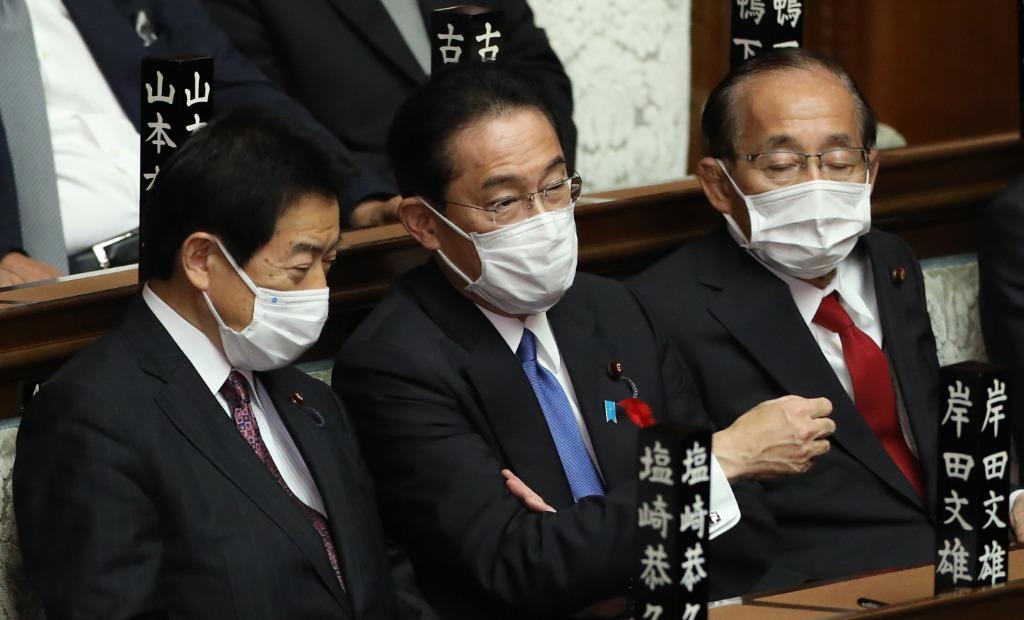Beijing, 25 Oct (Xinhua) -- With only one week left before the election of the House of Representatives of the Japanese Diet, the government and opposition parties stepped up their propaganda on the 24th to publicize their respective policies, involving topics such as epidemic prevention policies, aging, and fair distribution.
Kyodo News Agency noted that the issues related to the reconstruction of the Great East Japan Earthquake were rarely seen in the discussions of all parties, and the issue of nuclear-contaminated water treatment was ignored in the war of words among the various parties.

On October 4, during the prime minister's name election in the House of Representatives of the Diet of Japan in Tokyo, Fumio Kishida, center, the new president of the Liberal Democratic Party, awaits the results of the vote. (Photo by Xinhua news agency reporter Du Xiaoyi)
The House election is scheduled for voting on the 31st. Japanese media predict, based on polls, that the ruling coalition of the Liberal Democratic Party and the Komeito Party may win a majority of seats in the election, but the number of seats may be reduced. The latest poll results released by Kyodo News Agency on the 24th show that the support rate of the ruling coalition's political parties continues to maintain a leading edge.
Kyodo News Agency reported that the LDP regained power in the 2012 House of Representatives elections, the year after the Great East Japan Earthquake and the Fukushima Daiichi Nuclear Power Plant accident, and then played the slogan "Without the revival of Tohoku, there will be no rebirth of Japan." However, more than 10 years after the earthquake, nearly 40,000 people are still homeless, and the unsolved problems in the disaster area are piled up.
In the view of this media, the policy ideas of the parties in the election campaign reflect their posture in response to the voices of the people in the disaster areas. At present, it seems that at the party leaders' debate held the day before the announcement of the candidates, there were no issues related to how to deal with nuclear contaminated water and other disaster areas. On the 24th, the leaders of various parties participated in the debate program of the Japan Broadcasting Association Television Station, and the topics also mainly focused on social security issues such as low birthrate and aging.
On April 13, people gathered outside the prime minister's residence in Tokyo, Japan, to protest the discharge of Fukushima nuclear sewage into the sea. (Photo by Xinhua news agency reporter Du Xiaoyi)
The Japanese government's decision in April to dilute and filter contaminated water from the Fukushima Daiichi nuclear power plant into the sea drew strong opposition from the domestic fishing community. On this issue, the Kishida government had said before the election campaign that it would not change its policy of discharging sewage into the sea, and the Constitutional Democratic Party, the Communist Party of Japan and the Social Democratic Party demanded that the decision be withdrawn.
The Japanese government's decision to discharge sewage into the sea has also been questioned and criticized by neighboring countries. Although the Japanese side claims that nuclear contaminated water will be purified before being discharged into the sea to significantly reduce the level of radioactive material contained, marine ecology experts and environmentalists pointed out that the potential threat of this program to human society and the health of the marine ecological environment is difficult to estimate. (Liu Xiuling)